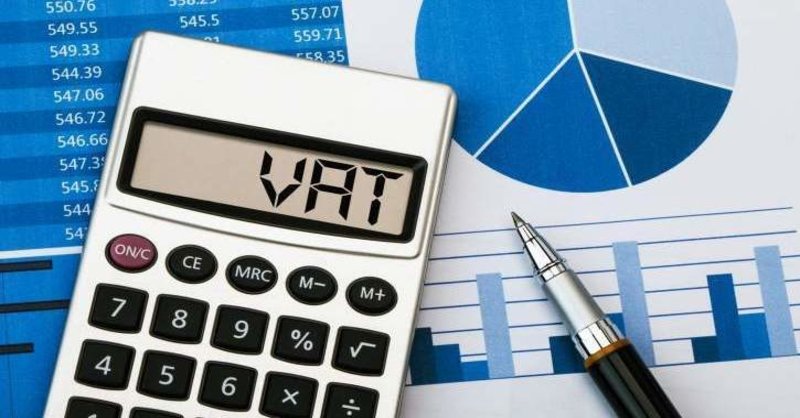
The UAE residents received a New Year’s gift from the government-VAT. How has this newly implemented tax affected the people?
The first day of the implementation of the 5% value-added tax (VAT) in the UAE dawned with many residents taking their first purchase with VAT in stride. Value Added Tax (VAT) came into force from yesterday in the country and most of the consumers who turned up at the shopping malls said they believe the increase is noticeable.
Consumers said that for low-income people it matters, but those who earn a good amount of money it is hardly noticeable.
On the first day of its implementation, let’s the gauge the impact of the VAT.
Mohammad Mufaris, a senior supervisor in an insurance company in Abu Dhabi, shopping at Lulu in Mushrif Mall, said “We have not noticed much of a price increase though there are slight differences in the prices of some goods. We have to wait and watch until the end of the month to know how our budget has been impacted.”
A few were surprised after seeing extra charges on their receipts but many were ready for VAT, which has always been in the news.
“We have been aware that VAT will be implemented starting January 1, so we have already made some adjustments in our household budget,” said 39-year-old Filipino expat Jerick Valencia, a Dubai resident for eight years
“Starting from today (Monday), every time I go to the supermarket to buy some groceries, I always make a mental calculation for VAT to keep me within our monthly budget for food and other household items,” Valencia shared.
“I bought some stuff today and my bill is Dhs 92.86 before VAT but after VAT it became Dhs 97.50. The VAT might be negligible on a single purchase but if you add it up, it will be a huge amount at the end of the month.
Even his five-year-old son’s ice cream is not exempt from the VAT. Isaih Edrick’s single scoop of his favorite chocolate ice cream is now Dhs 10.50, up from Dhs 10 before the VAT regime.
Valencia and his wife Amy said they will cut unessential things and expenses they can control. “We will not cut down on food as this is very basic and essential but we will definitely reduce our use of electricity – it’s winter, so no AC for us for now – and other things.”
“But I just hope companies in Dubai will give salary increase this year so we can also get some respite from our expenses,” Valencia, who works in sales, added.
Kevin Nevis, 26, meanwhile was surprised to find additional Dhs 4.92 on his purchase of vegetables and some snacks from a supermarket at a mall in Al Barsha. “Now I have to be more budget-conscious. I will only buy from groceries which offer discounts to compensate for the VAT charges.”
Doris, another Dubai resident of five years, said with VAT she will cut down on what she calls her favorite “luxury snacks” which are chips and other junk food. “It’s also for my own health anyway,” she added.
Meanwhile, Indian expat Sajid is happy that VAT is still not being added at his neighborhood store in Al Barsha. He bought some bananas, cucumber, and biscuits and paid only Dhs 10 with no VAT.
Small stores are not required to mandatorily levy VAT if annual revenues don’t exceed Dhs 375,000.
VAT notices and freebies
Parcels and Cargos
Kabayans, please note: sending balikbayan or cargo boxes to the Philippines is still VAT-free but starting from January 2, the cost of cargo boxes, used to send parcels back home, will have 5% value-added tax, a manager of a Filipino-owned courier company told Khaleej Times on Monday.
“Starting from January 2, prices of balikbayan boxes will carry 5% VAT,” Veronica Rey, LBC Express communications and marketing officer the Middle East, told Khaleej Times.
“This means a balikbayan box previously priced at Dhs 15 will become Dhs 15.75; Dhs 20 box will become Dhs 21 and our Dhs 25 jumbo box will become Dhs 26.25.
Rey clarified that sending cargo to the Philippines and other countries (except GCC) is zero-VAT. Sending parcels and cargoes locally (inter-UAE) or regionally (UAE to other GCC countries) will have 5% VAT.
She added that the 5% VAT on cargo boxes would have taken effect on Monday but was moved to Tuesday because it was a holiday.
VAT free Salik recharge
There is a 5% value-added tax (VAT) when you buy a Salik (toll gates) recharge card or tag from a petrol station or supermarket but no extra charge when you recharge your Salik account online or via the RTA website, Khaleej Times found out.
A KT staff bought a Dh100 worth Salik recharge card from petrol the station in Dubai on Monday, the first day of VAT implementation, and was asked to pay Dh5 more for a total of Dh105. Meanwhile, another KT staff recharged his Salik account online and paid only Dh100 for the same amount.
However, there is no VAT on Salik charge – it is still Dh4 deduction from smart tags every time a vehicle passes under these toll gates.
Last month, the Roads and Transport Authority (RTA) has clarified that VAT will not be levied on Salik or public transport facilities, after rumours on social media that VAT will also apply on Salik. There are seven Salik gates in Dubai.
“Passengers and commuters of public transport facilities like the buses, metro, tram and maritime transport, as well as cab passengers, will not be subject to VAT,” the authority said in a previous statement to Khaleej Times.
“The authority has always endeavoured to provide all means of convenience and comfort to customers, and encourage and incentivize them to use the various means of transport in the emirate,” the statement added.

Post Your Comments